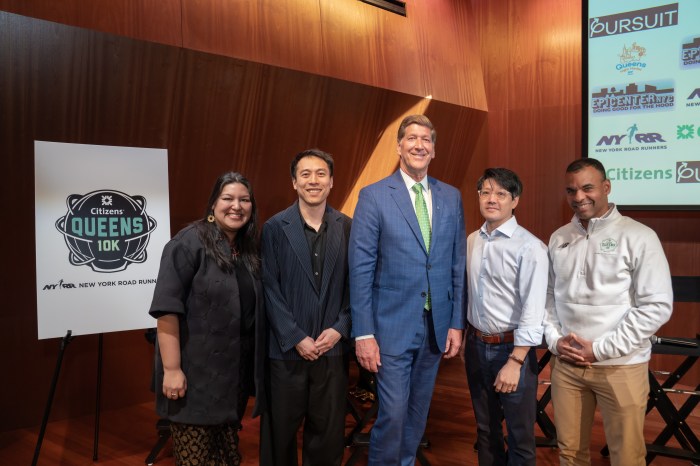Did a Taiwanese businessmans victory in Flushings State Assembly primary stem from successfully building a coalition of voters or ethnic pandering? One week after the race, the debate continues.
Jimmy Meng, poised to become the first Asian-American in the State Assembly, defeated incumbent, Barry Grodenchik, in the Democratic race because he brought Chinese, Korean and Hispanic voters to the polls, his campaign said. Grodenchik supporters, though, said Meng exploited his immigrant roots rather than win on his merits.
"There was a very strong ethnic turnout prompted by a campaign based on ethnic appeal," said Councilman John Liu, shocked by the election results, which had Meng garnering 2,758 votes to Grodenchiks 2,240. "The unfortunate moral of this story is that ethnic politics are still a reality of New York City life."
Liu, who ran for district leader on a ticket with Grodenchik, said the more qualified candidate lost.
"I would like to see people voting for candidates based on their agenda and vision of the future, and not on country of origin," said the councilman.
Jimmy Mengs daughter Grace, who managed his campaign, acknowledged that her fathers Taiwanese roots attracted voters, especially after telling them that none of the 150 State Assembly members are Asian.
"For them to hear that for the first time encouraged them to vote," said Mengs daughter.
But she said her fathers campaign went door to door reaching out to the entire Flushing population Chinese, Koreans, African-Americans, Russians and whites. She said Grodenchik, a first-term Assemblyman and former aid to Queens Borough Presidents Helen Marshall and Claire Shulman, lost because he spent too much time criticizing his opponent. "I think they ran a campaign on what not to do," said Mengs daughter.
The Asian Democrats campaign, however, acknowledged setting up three mobilizing groups targeting Korean, Chinese and Hispanic voters.
"Our campaign strategy was very effective in the Korean community," said John Kim, the former publisher of the newspaper Korean Market News, who led Mengs Korean mobilizing group.
Kim acknowledged that Koreans and Chinese have not traditionally voted together as a bloc, and, he added, at the beginning of the election race most Koreans intended to vote for Grodenchik. But, he said, the Meng campaign emphasized a mutual identity among Koreans and Chinese. The Asian Democratic candidate also promised to help get Korean leaders elected in the future.
"In the Korean-American community so many people wish to have a political leader because their immigration history in this area is more than 30 years," said Kim, estimating that 600 to 800 Koreans voters came out in support of Meng.
Considering the assembly district, created in 2002, is 51% Asian, the rise of ethnic candidates seemed inevitable. Meng and Grodenchik also battled closely in the districts first primary. But in that race, Grodenchik squeaked past Meng with 152 votes, largely because another Chinese candidate, Ethel Chen, divided the Asian vote.
Meng was the only Asian Democrat in last weeks primary. Three other Asian-Americans, including Councilman Liu, ran for and won district leader positions.
(pick up a copy of the Queens Courier to read more)
































